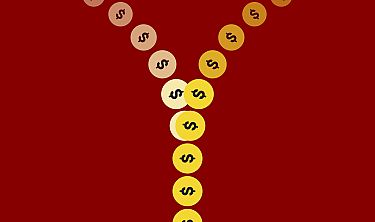When you move from being an employee to managing your own business, there’s a financial learning curve. What investments will you need to make in your new business? How will you manage your finances? How much should you charge for your work? Which expenditures are critical, and which can wait?
Setting a budget is critical in order to anticipate expenses and profits. We asked attorney and author Leslie H. Tayne her financial advice for new entrepreneurs. “Being financially prepared is so important to set yourself up for success,” she says. “Once you have your mind set on moving forward with your business endeavor, it’s critical to home in on the financial details and have a budget in place as well as accurate revenue projections.”
When you’re making a business budget, keep these tips in mind.
Understand Types of Budget Items
“While it may not seem so, budgeting is a very simple formula that consists of money coming in versus money going out, and having a clear snapshot of your financials is key to getting your business off on the right foot,” Tayne says.
Every business has unique elements, but as a general rule, your budget should allow you to plug in dollar amounts for this equation:
Sales - Cost of Sales = Gross Profit
This follows the same basic budgeting you do in your personal life, tracking expenses against income. Do some investigating into your last few months of finances – where is your money going? What categories do they fall into? Are there expenses you forget to consider? Some of the operating expenses (aka: Cost of Sales) you should take into consideration include: advertising, salaries and wages, rent, utilities, delivery costs, supplies, professional development, vendors, and taxes. Tracking income items is a little bit more straightforward, but can be hard to predict. They include things like sales revenue, interest income, and investment income. Do your best to anticipate what is coming, and to set goals for yourself and your work.
Choose a Budgeting App
Some people use Excel spreadsheets to track and organize expenses and revenue. For more advanced functions, Freshbooks, Quickbooks and Wave are small-business accounting apps that allow you to create invoices, bill automatically for recurring invoices and accept credit card payments. Additional functions of these types of apps include the ability to scan receipts and pay employees.
Take It Month by Month
Your yearly budget should include a budgeted amount column and an actual amount column, to give you a comprehensive view of your budget.
For example, let’s consider advertising costs: You may budget $100 a month for advertising — so, from January through December, $100 is the amount that shows in the budget column next to “advertising.” However, the actual amounts spent may change. They will reflect whether you went over, came in under, or stayed on budget.
Looking out over the year, plan ahead for seasonality in your work. Are there times when you’re busier, when your clients ask more of you, times when you intentionally work a little less (hello summer!)? How can your budgeting reflect those realities? Alternatively, are you looking to grow your business and revenue in the next year? What kind of ambitious, but reasonable, targets can you set up for yourself? Budgeting is so much more than balancing a checkbook and putting numbers on a page - it can actually help you set the course for where you want to be going.
Evaluate for Changes
By viewing the budgeted and actual amounts for each month, you can see where you need to make adjustments. The end of the year is too late to discover that you’ve overspent, or that the income from your products or services did not meet expectations. That’s why it’s important to review your budget on a regular basis. It’s meant to be a living document. Set aside time in your calendar each month (or week!) to check back and adjust your actuals and estimates. What’s working? What isn’t? What is possible?
In addition to showing whether you’re overspending or underspending, your budget can also help you make major changes. If your budget reveals that your clients are routinely slow in paying you, you might develop a more aggressive billing strategy (for example, charging a late fee). If you’re behind on revenue, you can pick up the pace. If you’re ahead on revenue, you have choices about what doors are now open.
Keep Personal Expenses Separate
Tayne advises against commingling business and personal finances, since it’s harder to manage your income and expenses that way. “You should have a separate checking account and keep good financial records,” she says. “Maintaining a good accounting system will help with budgeting and reporting, so you can make adjustments where and when necessary.”





